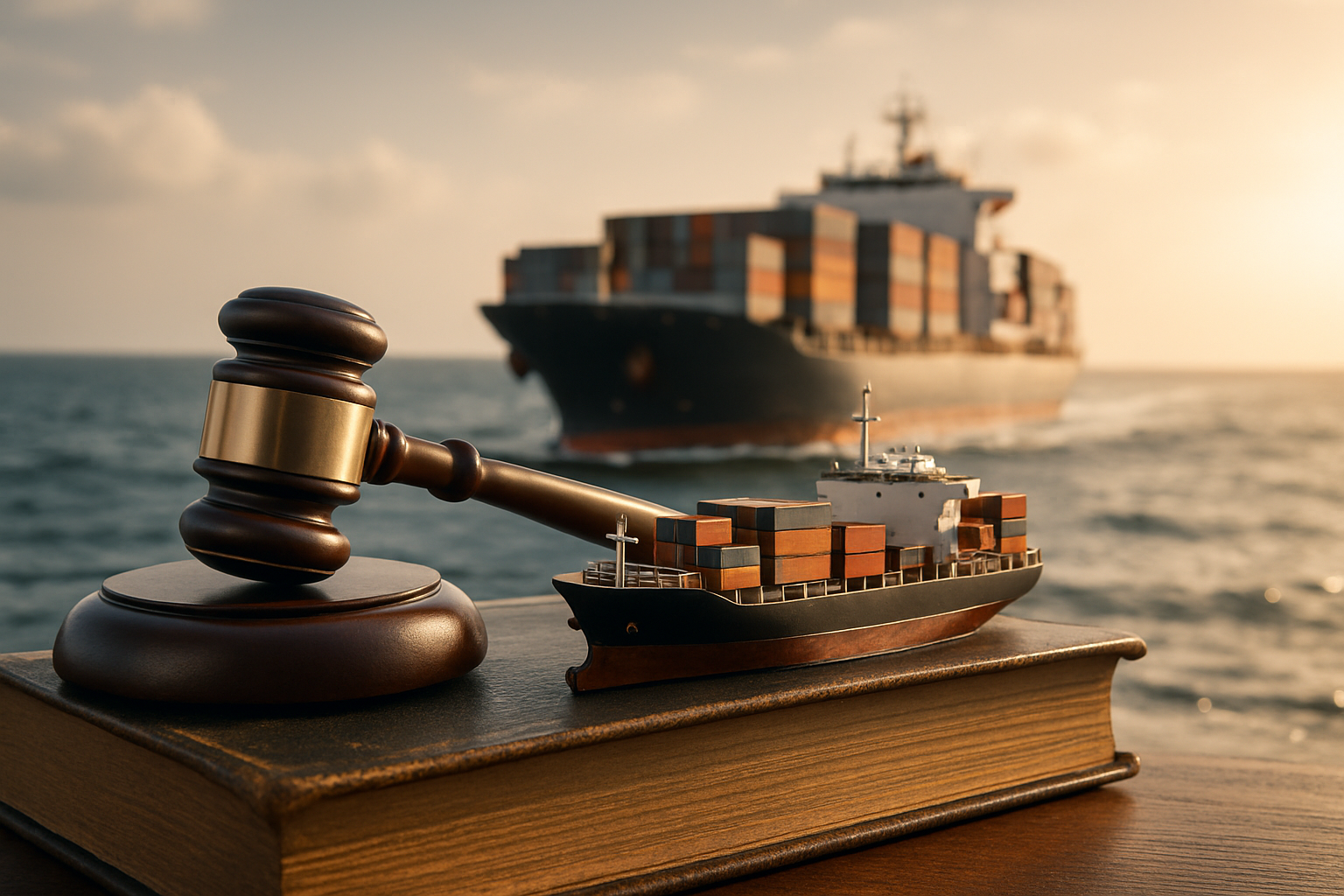The Enigma of Admiralty Law: Navigating Maritime Legal Waters
In the vast expanse of legal disciplines, admiralty law stands as a fascinating yet often overlooked realm. This specialized branch of law governs maritime commerce, naval matters, and oceanic disputes, shaping the rules of the high seas. From ancient seafaring traditions to modern international trade, admiralty law continues to play a crucial role in maintaining order on the world's waterways.

During the Middle Ages, maritime law evolved significantly in Europe. The Hanseatic League, a confederation of merchant guilds, established a set of maritime customs that greatly influenced the development of admiralty law. The British Admiralty Courts, established in the 14th century, further refined these principles and expanded their jurisdiction over maritime matters.
The Unique Jurisdiction of Admiralty Courts
One of the most intriguing aspects of admiralty law is its distinct court system. In many countries, including the United States, admiralty cases are heard in specialized maritime courts or divisions within federal courts. These courts have jurisdiction over a wide range of maritime issues, including vessel collisions, cargo disputes, salvage operations, and even piracy.
Admiralty courts often apply different procedural rules and legal principles than those used in common law courts. For instance, the concept of maritime liens allows claimants to seek redress against a vessel itself, rather than its owner, in certain situations. This in rem jurisdiction is a unique feature of admiralty law that reflects the mobile nature of maritime commerce.
The Law of the Sea: International Maritime Regulations
As global trade expanded, the need for international cooperation in maritime matters became increasingly apparent. The United Nations Convention on the Law of the Sea (UNCLOS), adopted in 1982, serves as a comprehensive framework for maritime law on an international scale. This treaty establishes guidelines for territorial waters, exclusive economic zones, and the rights of passage for vessels.
UNCLOS also addresses critical issues such as marine environmental protection, scientific research, and the exploitation of resources in international waters. While not all nations have ratified the convention, it remains a cornerstone of international maritime law and continues to influence admiralty practices worldwide.
Admiralty Law in the Modern Era: Emerging Challenges
The rapid pace of technological advancement and changing global dynamics present new challenges for admiralty law. The rise of autonomous vessels, for instance, raises complex questions about liability and regulation. How does one determine fault in a collision involving an unmanned ship? Who bears responsibility for cybersecurity breaches that lead to maritime accidents?
Climate change also poses significant challenges to admiralty law. As polar ice recedes, new shipping routes are opening up in the Arctic, necessitating the development of specialized regulations for these environmentally sensitive areas. Additionally, rising sea levels and increasingly severe storms are forcing admiralty courts to grapple with novel insurance and liability issues.
The Intersection of Admiralty Law and Environmental Protection
In recent years, there has been a growing emphasis on environmental concerns within admiralty law. International conventions such as the International Convention for the Prevention of Pollution from Ships (MARPOL) set standards for vessel emissions, waste management, and oil spill prevention. Admiralty courts play a crucial role in enforcing these regulations and adjudicating disputes arising from environmental incidents at sea.
The concept of marine sanctuaries and protected areas has also gained traction, leading to new legal frameworks for balancing commercial interests with conservation efforts. Admiralty law must now navigate the complex interplay between maritime commerce and the preservation of marine ecosystems, often requiring delicate legal balancing acts.
The Enduring Relevance of Admiralty Law
As we sail into an increasingly interconnected and technologically advanced future, admiralty law remains a vital and dynamic field. Its ability to adapt to changing circumstances while maintaining its core principles has ensured its continued relevance in the modern world. From resolving international disputes to protecting marine environments, admiralty law continues to shape the legal landscape of our oceans and waterways, guiding us through the sometimes turbulent waters of maritime commerce and governance.





